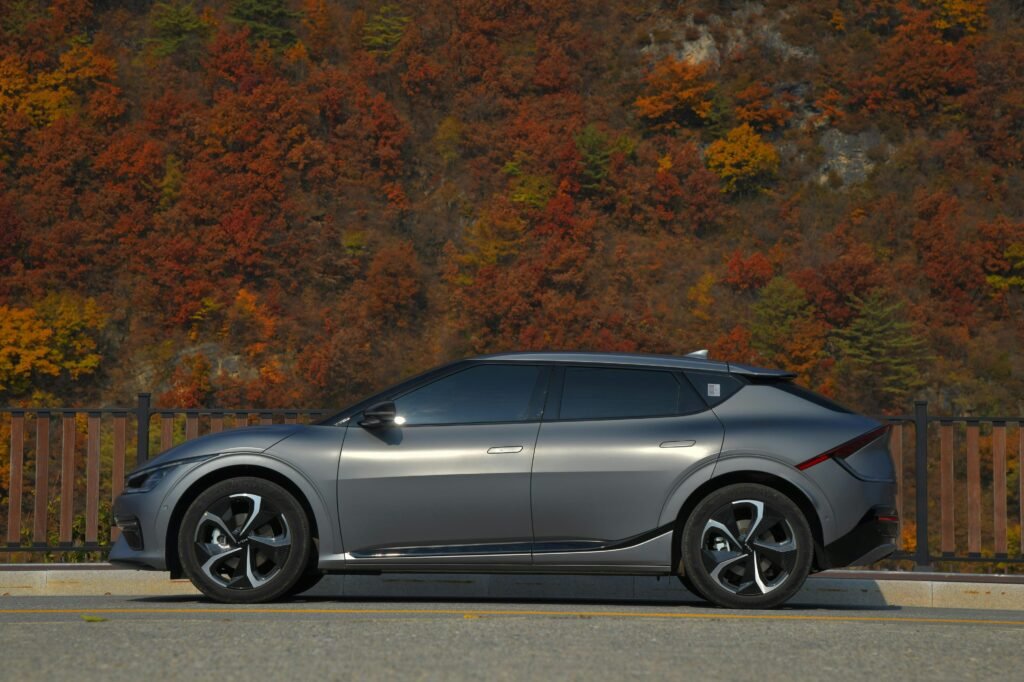So, you’re curious about the lifespan of an EV battery, huh? It’s a hot topic these days, especially with more people making the switch to electric vehicles. You might be wondering about the durability and how frequently you’ll need to consider replacing that hefty component under the hood. Well, you’re not alone in pondering this, and fortunately, there’s some solid information out there that can shed light on this very question. From understanding the factors that influence an EV battery’s longevity to getting a grip on the average lifespan, you’ll find that keeping your electric ride running smoothly for years might not be as daunting as it first appears.

Understanding EV Batteries
When you’re diving into the world of electric vehicles (EVs), one crucial component that needs your attention is the EV battery. It’s essentially the heart of your EV, powering it to glide down the road, silently and efficiently. So, let’s break down what these batteries are, how they function, and their lifespan to give you a clear picture.
Definition and types of EV batteries
EV batteries are rechargeable batteries that store electrical energy to power electric motors in vehicles. There are several types, but the most common ones you’ll encounter are Lithium-ion (Li-ion), Nickel-Metal Hydride (NiMH), and Lead-Acid. Each type has its unique advantages, with Lithium-ion leading the pack due to its superior energy density and longer lifespan.
How EV batteries work
Imagine your EV battery as a large power bank that stores electricity. When you press the accelerator, the battery sends power to the motor, which then propels your vehicle. The magic lies in the conversion of electrical energy into mechanical energy. And when you’re braking or coasting, many EVs use a system called regenerative braking, which converts some of the vehicle’s kinetic energy back into electrical energy, recharging the battery a bit. Cool, right?
The lifespan of EV batteries
The lifespan of EV batteries is something you’re likely curious about. Typically, these batteries last between 8 to 15 years before their capacity diminishes significantly. However, this varies based on how the vehicle is used and cared for. So, think of your EV battery as a long-term companion that needs a bit of looking after.
Factors Affecting EV Battery Lifespan
Diving deeper, several factors influence how long your EV battery will serve you faithfully. Understanding these can help you get the most out of your battery.
Battery chemistry and quality
Not all batteries are created equal. The chemistry and quality of the materials used in your EV battery significantly affect its lifespan. Higher quality batteries with advanced chemistry may come with a higher price tag but can offer longer life and more reliable performance.
Charging habits
How and when you charge your battery can also play a role. Constantly charging your battery to 100% or letting it drain to 0% can strain the battery more than maintaining a charge between 20% and 80%. Moderation is key.
Usage patterns
Frequent, heavy acceleration and relying heavily on fast charging can also wear your battery down faster. Like a balanced diet for your health, a balanced driving style can keep your battery in top shape for longer.
Environmental conditions
Extreme temperatures, be it hot or cold, are not friends of your EV battery. High temperatures can accelerate battery degradation, while cold temperatures can temporarily reduce battery efficiency and range. Keeping your EV in a temperate environment as much as possible can help prolong its battery life.
Signs Your EV Battery Needs Replacement
So, how do you know when it’s time to say goodbye to your current battery and welcome a new one? Here are some telltale signs.
Decreased range
If you’re noticing that your EV doesn’t take you as far on a full charge as it used to, it could be a sign that the battery is wearing out.
Longer charging times
Another indicator could be longer charging times. If it’s taking significantly longer to charge your EV than it used to, the battery might be approaching the end of its lifecycle.
Battery management system warnings
Modern EVs come equipped with a battery management system (BMS) that monitors the health of the battery. Warnings or alerts from this system should not be ignored.
Visible damage or swelling
Lastly, physical signs like visible damage or swelling of the battery are clear indicators that it’s time for a replacement.
Average Lifespan of EV Batteries
Manufacturer claims vs. real-world experiences
Manufacturers might claim a lifespan of up to 15 years under ideal conditions, but real-world experiences can vary. Factors such as those mentioned earlier can lead to batteries needing replacement sooner. However, with proper care, reaching or surpassing the decade mark is certainly achievable for many EV owners.
Comparison with internal combustion engine vehicle lifespans
Compared to the internal combustion engine (ICE) vehicles, EVs have fewer moving parts but the battery’s lifespan can be a consideration point. While an ICE vehicle might need more frequent maintenance, the major expense of replacing an EV battery is usually a one-time event in the vehicle’s life.

Maximizing Your EV Battery Lifespan
To extend your EV battery’s life, consider adopting these practices.
Optimal charging practices
Aim to keep your battery’s charge between 20% and 80%. Avoid regularly charging to 100% or letting it drain completely. Also, moderate use of fast charging stations can help keep your battery healthy for longer.
Managing battery temperature
Try to park your EV in the shade or in a garage during extreme temperatures. Some EVs also come with thermal management systems that help maintain the battery at an optimal temperature.
Minimizing high power demand activities
Frequent rapid acceleration and high-speed driving can stress the battery. Enjoy your EV’s quick acceleration occasionally, but driving in a moderate manner most of the time can help your battery last longer.
Regular maintenance and diagnostics
Keeping up with regular maintenance and diagnostic checks can help identify and address any potential battery issues early, potentially extending its life.
The Process of Replacing an EV Battery
When to consult with a professional
If you’re experiencing any of the signs of battery wear or if your vehicle alerts you to a battery issue, it’s time to consult with a professional. EV technicians can give you a more accurate assessment of your battery’s health.
Expected costs of replacement
Replacing an EV battery is not cheap, often costing thousands of dollars. However, prices are expected to decrease as technology advances and production scales up.
Warranty coverage and its implications
Many EV manufacturers offer warranties that cover the battery for up to 8 years or a certain mileage. It’s crucial to understand what your warranty covers, as it can significantly reduce the financial impact of a battery replacement.

Recycling and Disposal of EV Batteries
Environmental considerations
Disposing of EV batteries is not as simple as tossing them in the trash. Their chemical composition requires careful handling to avoid environmental harm.
Available recycling programs
Fortunately, recycling programs and facilities are becoming more widespread. These programs ensure that valuable materials from your old battery can be recovered and reused, reducing environmental impact.
Future of EV battery disposal
Innovation in recycling technologies and an increasing focus on sustainability suggest that the future of EV battery disposal will be more efficient and environmentally friendly.
Innovations in EV Battery Technology
Advancements in battery life and efficiency
Researchers and manufacturers are constantly working on improving battery technology. This includes efforts to increase life, reduce charging times, and enhance overall efficiency.
Emerging battery technologies
Exciting developments, such as solid-state batteries, promise to revolutionize the EV market by offering higher energy density and safety. These advancements could significantly reduce concerns about battery life and replacement costs.
Impact of technology on replacement rates
As battery technology advances, the need for replacements will likely become less frequent, making EVs even more attractive and accessible to a broader audience.

Economic Aspects of EV Battery Replacement
Cost over time compared to fuel costs
While the upfront cost of an EV battery replacement might seem high, it’s important to consider the overall cost savings over time, including lower fuel and maintenance costs compared to ICE vehicles.
Government incentives and subsidies
In many regions, government incentives and subsidies for EVs and related infrastructure can help offset the costs of battery replacement, making it more financially manageable.
Resale value impact
A healthy battery can significantly influence the resale value of your EV. It’s worth considering the condition of your battery if you’re planning to sell or trade in your vehicle in the future.
Future Trends in EV Battery Maintenance and Replacement
Predictive maintenance technologies
Emerging technologies are making it possible to predict battery issues before they become severe, allowing for timely maintenance and potentially extending battery life even further.
Battery as a Service (BaaS) models
Some companies are exploring BaaS, where you would essentially lease the battery rather than owning it outright. This could make managing battery life and replacements easier and more cost-effective.
Longevity and the shift towards sustainability
The trend is clear: the future will emphasize battery longevity and sustainability. From advancements in battery technology to innovative recycling programs, the goal is to make EVs a practical, long-term choice for an ever-growing number of drivers.
Navigating the complexities of EV batteries can seem daunting at first, but understanding how they work, how to care for them, and when to replace them can empower you to make the most of your EV experience. As technology progresses, the journey is only getting smoother and more exciting. So, buckle up and enjoy the ride!

